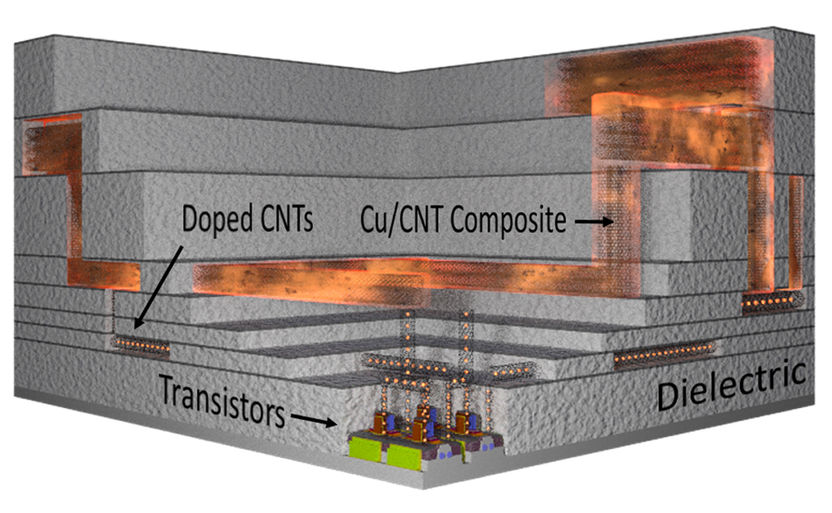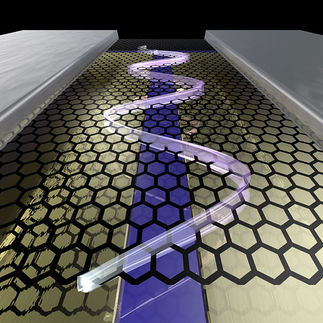Carbon Nanotubes for Advanced Interconnects
CEA, Fraunhofer IPMS, IBM, Aixtron, CNRS, GSS and University of Glasgow start joint project on Carbon Nanotube Composite Interconnects (CONNECT) to enable future CMOS scaling.

© Fraunhofer IPMS
A European consortium of seven research and industry partners have started a joint four million Euro project over three years on fabrication techniques and processes to enable reliable Carbon NanoTubes (CNTs) for on-chip interconnects in ULSI microchip production.
As the chip size goes down, interconnects become major bottlenecks irrespective of the application domain due to electromigration issues and an ever increasing power consumption. The CONNECT project investigates ultra-fine CNT lines and metal-CNT composite material for addressing the issues of current state-of-the-art copper interconnects. Novel CNT interconnect architectures for the exploration of circuit- and architecture-level performance and energy efficiency will be developed.
With significantly improved electrical resistivity, ampacity, thermal and electromigration properties of CNT interconnects compared to state-of-the-art approaches for conventional copper interconnects, an increased power and scaling density of CMOS or CMOS extension will be available and applicable to alternative computing schemes such as neuromorphic computing.CMOS compatibility as well as challenges of transferring new processes into industrial mass production will be addressed. The members of the CONNECT consortium from Germany, Switzerland, Great Britain and France are embedded along the electronics value chain from fundamental research to end‐users and bring together some of the most renowned research groups in that field in Europe.
The technologies developed in this project are key for both performance and manufacturability of scaled microelectronics to manifest miniaturized microelectronic products with enhanced functionality at ever decreasing cost. The procurement of CONNECT will foster the recovery of market shares of the European electronic sector and prepare the industry for future developments of the electronic landscape.
Other news from the department science

Get the chemical industry in your inbox
By submitting this form you agree that LUMITOS AG will send you the newsletter(s) selected above by email. Your data will not be passed on to third parties. Your data will be stored and processed in accordance with our data protection regulations. LUMITOS may contact you by email for the purpose of advertising or market and opinion surveys. You can revoke your consent at any time without giving reasons to LUMITOS AG, Ernst-Augustin-Str. 2, 12489 Berlin, Germany or by e-mail at revoke@lumitos.com with effect for the future. In addition, each email contains a link to unsubscribe from the corresponding newsletter.




























































